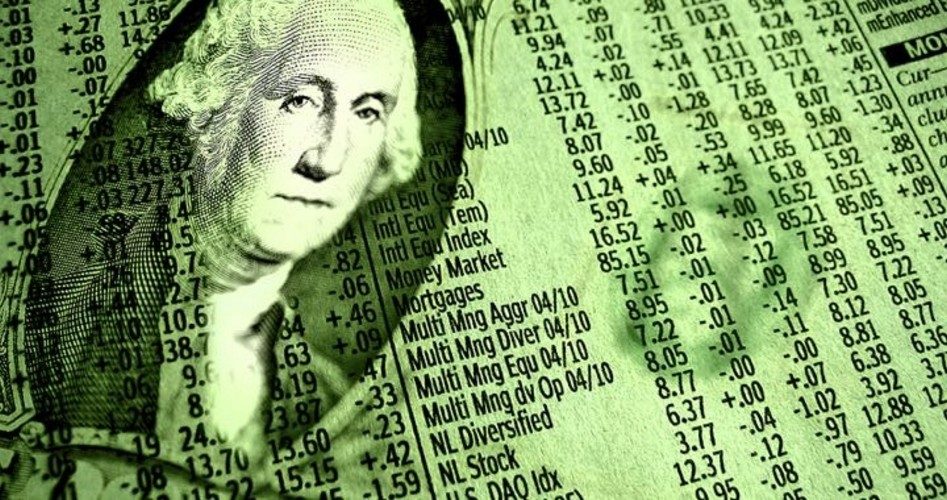
Barbara Friedberg must be feeling pretty good right about now. Last October she made “10 Bold Stock Market Predictions for 2018,” and already she is scoring five out of 10:
Value stocks will triumph;
Cash will be king;
Inflation will inch up;
Market volatility will return; and
Bonds will offer higher yields.
The jury is still out on her prediction that “the Bull Market [in stocks] will end in 2018.”
Friedberg is no lightweight. She is a former portfolio manager and has taught finance and investments at several universities. She authored a popular book in 2014, How to Get Rich Without Winning the Lottery.
Despite the mantra that stocks’ performance is often a harbinger for future economic performance, few at present agree with her about the bull market in stocks being over.
The sell-off (which appears to be continuing as this is being written) in stocks is impressive. The Dow Jones Industrial Average (DJIA, or The Dow) has lost 3,227 points since its high on January 26, or 12 percent, while the S&P 500 Index (SPX) has dropped by 290 points, or 10 percent, since then as well. This is into “correction” territory and should be drawing negative outlooks on the future of the U.S. economy from every quarter.
But they can’t be found. Aside from perma-bears Michael Snyder and David Stockman, few of the usual suspects can be found who agree with Friedberg. When the Wall Street Journal polled its economists, they remained adamant about the health of the economy: GDP will continue to grow and unemployment will continue to drop:
Despite the Wall Street turbulence, the economists remained optimistic about the economy and anticipated the Fed would stick with its plan of gradually raising interest rates under new Chairman Jerome Powell….
The average probability of a recession in the next year [is] 14%, ticking up from 13% in January’s survey but remaining low.
This outlook coincides with that of economist Gary North: “I do not think the recent decline in stocks is a recession indicator. The S&P 500 [Index] would have to fall by at least 20% to persuade me that it is signaling a recession in the next six months.… The length of the present recovery [nine years and counting] is the #1 warning of recession. But it is not precise.”
From the Political Calculations website comes further reassurance. Using a study done by Jonathan Wright back in 2006 while he was working for the Federal Reserve, the web author declares that “the risk of a national recession beginning in the United States anytime in the next year, or specifically between January 30, 2018 and January 30, 2019, is slightly over 0.5%.”
Noah Smith, writing for Bloomberg, can’t find any reason for concerns about a recession following the sell-off on Wall Street either: “The three best-known recession triggers — asset bubbles, oil-price spikes and interest-rate hikes — all look reasonably unlikely.” The impact of rising oil prices on the economy was found to be significant by James Hamilton, professor of economics at the University of California, San Diego. Hamilton looked for “triggers” that warned of the coming of the Great Recession that began in 2007 and found that rising “oil prices appear to have made a material contribution” to that recession.
But today oil prices are declining, not rising. The price of crude oil for delivery in March just dropped below $60 a barrel, down from $66 a barrel clocked on January 26.
As The New American has repeatedly noted, the improvement in the U.S. economy since November 2016 has been breathtaking in its breadth, scope, and depth. With tax reform putting tax dollars back into the pockets of those who earned them, coupled with the increasing perception that the United States is now the “tax haven for the world,” the present sell-off appears to be more political than economic. In the absence of exogenous negative events, stocks are likely to find a bottom shortly, and begin again to reflect the future of the booming U.S. economy.
Image: Clipart.com
An Ivy League graduate and former investment advisor, Bob is a regular contributor to The New American magazine and blogs frequently at LightFromTheRight.com, primarily on economics and politics. He can be reached at [email protected].
Related articles:
Treasury Advisory Committee Says U.S. Must Borrow Trillions, Sending Stocks Down
Americans Expect Booming Economy to Continue, Says Conference Board



